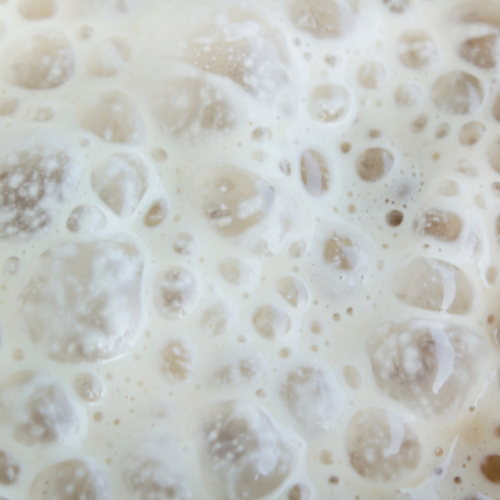The microbiome–metabolism link

New research has linked the gut microbiome to metabolic disorders such as obesity and type-2 diabetes. Curated from our podcast discussion with Dr Thomas Barber, here are some key takeaways on the microbiome–metabolism link and the role of the gut in human health.
The gut microbiome: a training ground for your immune cells
“You can imagine the microbiota as being part of the immune system, they’re one and the same thing.”
The human gut plays host to trillions of microbes, collectively outnumbering our human genes by an order of 100 – two and a half million genes to our 22,000 human ones.
In return for space and nutrients, our resident microbiota help break down indigestible fibres, nourish the gut wall, protect against pathogenic invasion and even train immune cells to distinguish between harmful invaders and harmless compounds.
It’s for this reason that early disruptions to the gut microbiota, be that c-section birth or bottle feeding, can increase a child’s risk of autoimmune conditions such as type-2 diabetes.
Gut health and its impact on brain function and metabolism
“A lot of the hormones and neurotransmitters that the gut manufactures are similar, or in many cases the same as the neurotransmitters in the brain.”
The human gut can influence everything from metabolism to mood via the gut-brain axis, a bidirectional communication network mediated by the vagus nerve, hormones, and gut-derived neurotransmitters.
Take Glucagon-like Peptide 1, a hormone produced by the gut in response to food, which causes reduced appetite and encourages insulin production. Or serotonin, AKA the happy hormone, 90% of which stems from the gut. The microbiome can also influence metabolic function through endotoxins, cell wall components of gram-negative bacteria that can cause low-grade inflammation (more on this later).
Leaky gut syndrome: the key to tackling so-called 21st-century diseases?
“Endotoxemia and the resultant chronic inflammatory response may be a forerunner to many modern-day 21st century conditions such as type-2 diabetes and obesity.”
The gut lining separates self from non-self (your resident microbiota), and it’s for this reason that it contains as much as 70% of the body’s immune cells. However, external factors such as chronic stress, alcohol consumption, and fatty foods can all impair the gut wall’s integrity and undermine this barrier.
If the intestinal lining becomes too permeable or “leaky”, endotoxins from the outer layer of gram-negative bacteria can pass through the gut lining, triggering low-level inflammation.
There’s no such thing as a completely watertight gut, but there does seem to be a correlation between a compromised gut lining and many 21st-century diseases. We know that endotoxins can influence mitochondrial function as well as insulin signalling pathways for example, both of which are important factors in the development of type two diabetes.
A new frontier in human health research
“Although it’s not an organ in the conventional sense, the gut microbiome performs many essential functions for physiology. And I think in that sense, we should be considering it as an organ.”
The gut microbiome represents a new and exciting frontier in human health, comparable to the sequencing of the human genome. But our understanding of the gut microbiome is still in its infancy and we require more research and better quality human studies to fully comprehend its role in our health.
Whilst roughly 5000 papers are published annually on the topic of the gut microbiome, much of the existing research is confined to individual strains of bacteria in the microbiome. Going forward, we need to take a more holistic approach to how microbes interact with each other and the host.




















